Attention Deficit Hyperactivity Disorder ADHD is a neurodevelopmental disorder that affects individuals’ ability to sustain attention, control impulses, and regulate motor activity. For those grappling with ADHD, navigating daily tasks can be a challenging journey marked by distractions and restlessness. However, a seemingly simple yet innovative solution has emerged in the form of fidget toys, offering a tangible and effective way to empower individuals with ADHD. Fidget toys, often dismissed as mere distractions in traditional settings, have gained recognition as powerful tools for those with ADHD. These toys come in various forms, from stress balls and spinners to cubes and textured objects, providing a discreet outlet for restless energy. The fundamental concept behind fidget toys lies in their ability to engage the senses, offering a physical and often repetitive action that helps redirect excess energy, allowing individuals to better focus on tasks at hand.

One of the key benefits of fidget toys is their non-intrusive nature, allowing individuals to use them discreetly without disrupting others. In classrooms, offices, or public spaces, these unassuming gadgets offer a silent ally to those struggling with ADHD, providing an outlet for their restless energy without drawing unnecessary attention. This subtle approach not only benefits the individual but also promotes a more inclusive and understanding environment, where the unique needs of those with ADHD are accommodated without stigma. Moreover, the use of fidget toys has been linked to improved concentration and cognitive performance. Research indicates that engaging in repetitive, physical movements – such as squeezing a stress ball or manipulating a fidget spinner – can enhance cognitive function by increasing arousal levels and promoting better regulation of attention. This positive impact on focus and concentration has led to a growing acceptance of fidget toys as valuable aids in educational settings, where individuals with Fidget toys for ADHD often face challenges in maintaining attention during lectures or studying.
Beyond the academic realm, fidget toys have proven beneficial in professional environments. Individuals with ADHD may find it challenging to sustain attention during lengthy meetings or tedious tasks, and fidget toys provide a discreet means of channeling their excess energy, potentially improving overall productivity. Employers are increasingly recognizing the value of creating workspaces that cater to diverse neurodivergent needs, and the incorporation of fidget toys is a step towards fostering a more inclusive and supportive workplace culture. In conclusion, fidget toys have emerged as playful solutions with profound implications for individuals with ADHD. By providing a tangible outlet for restless energy and promoting sensory engagement, these unassuming gadgets empower individuals to navigate daily challenges more effectively. As society continues to embrace neurodiversity, the acceptance and incorporation of fidget toys into various settings reflect a positive shift towards understanding and accommodating the unique needs of those with ADHD, fostering an environment where everyone can thrive.


